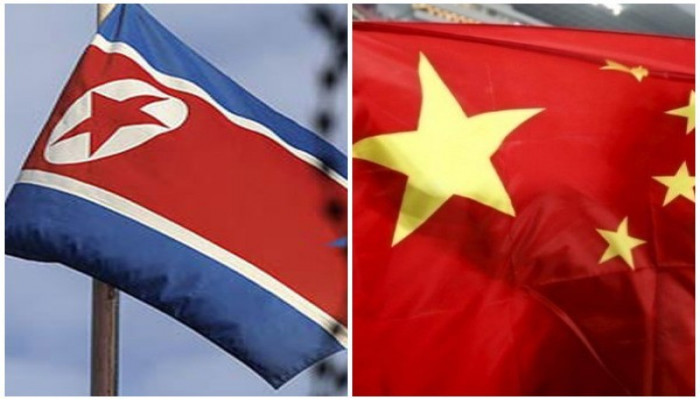China's repatriation of North Korean defectors supports Pyongyang's authoritarian rule: Report
- In Reports
- 07:06 PM, Jan 27, 2024
- Myind Staff
Human rights experts are challenging China's recent assertions that North Koreans entering China are not political refugees but merely illegal migrants pursuing economic opportunities. These experts argue that such claims align with supporting Pyongyang's authoritarian system, drawing parallels with China's own practices. Earlier this week, China maintained that North Koreans arriving in the country are not political refugees but individuals seeking economic opportunities.
Chinese Foreign Ministry spokesperson Wang Wenbin dismissed the presence of "so-called DPRK defectors" in China, stating that those entering for economic reasons are not considered refugees. This follows South Korea's call for Beijing to safeguard North Korean defectors in China during a UN meeting on China's rights records.
During the fourth review by the UN Human Rights Council's Universal Periodic Review (UPR) Working Group in Geneva, South Korea's ambassador, Yun Seong-deok, emphasized that Beijing should cease the repatriation of North Koreans. He urged China to align its refugee law with the 1951 Refugee Convention.
This marked the first instance of South Korea addressing China at the UPR concerning its treatment of North Korean defectors. According to reports from Human Rights Watch and the advocacy group Liberty in North Korea, these defectors face severe treatment, including torture and death sentences, upon forced repatriation.
China's constitution allows the granting of asylum to foreigners making political requests. However, William Nee, a research and advocacy coordinator at Chinese Human Rights Defenders, emphasized that China has consistently declined to establish a screening system.
China consistently refuses to establish a screening system with the UN High Commissioner for Refugees to assess North Koreans as refugees, says William Nee from Chinese Human Rights Defenders. He notes the reluctance may stem from China's Leninist system, shared with North Korea, as it could indirectly question the CCP's own system. The Chinese Communist Party (CCP) has ruled China since 1949.
China and North Korea, influenced by communist ideology from the former Soviet Union's Vladimir Lenin, employ dictatorship and strict population control. According to Robert King, the former US special envoy for North Korea's human rights, China labels North Korean defectors as "economic migrants" to downplay political issues. King emphasizes this strategy protects China's authoritarian government, allowing control over people and power while supporting restrictions on freedom, human rights, and information.
China's Foreign Ministry spokesperson, Wang Wenbin, asserts Beijing promotes human rights through security, aligning with its socialist path. However, Roberta Cohen notes China fears complicity in North Korea's crimes against humanity, particularly concerning North Koreans who escape the country.
China's denial of North Korea's human rights situation aims to avoid potential international criminal charges, according to Roberta Cohen. A 2014 UN report labeled North Korea's acts as crimes against humanity. Greg Scarlatoiu urges China to recognize defectors as refugees, adhering to the 1951 Convention instead of violating ratified international human rights instruments.
Image source: ANI







Comments